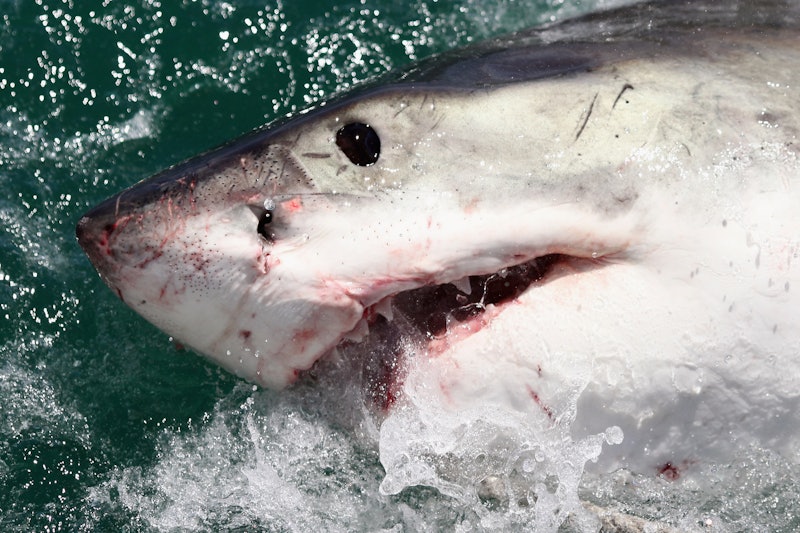Entertainment
This Is One Of Shark Week's Most Terrifying Specials

In many crime investigation specials, it's all about the motive and the pattern. This year, Shark Week will investigate the supposed "serial killer" patterns of a great white shark off the California coast. So is Great White Shark Serial Killer Lives a real story? The next installment of the investigation will premiere July 23 and it hopes to prevent yet another victim of this "shark serial killer."
For those who are terrified of swimming out too far, it may be unsettling to know that Great White Shark Serial Killer Lives is, in fact, a true story. In Entertainment Weekly's Shark Week guide, resident expert Jeff Kurr encourages audiences to watch because "This is, without a doubt, the most intriguing shark attack story since Jaws. But unlike Jaws, this story is 100 percent true. It's about a series of mysterious great white attacks that we solve using the latest shark science."
Shark attacks have always piqued audience interest, but usually these attacks are dramatized in television or film as sharks intentionally signaling out humans as prey. In Great White Shark Serial Killer Lives, the sharks aren't necessarily stalking human prey, but they do show up around the same time every two years. According to Discovery, "Every two years in October - in 2008, 2010, 2012 and 2014 - a secluded beach on the central California coast has been the scene of great white shark attacks."
Proving serial killer motives over coincidence is a tall order for the shark experts of Great White Shark Serial Killer Lives. The NOAA cites that most shark attacks on humans happen as "a case of mistaken identity" (sharks mistaking humans for marine prey), and not a more humanized desire to kill.
According to Surfline, there has been an increase in the great white shark population in southern California due to careful methods of conservation. With heavy fines deterring people from hunting sharks, the population has — and so have the sightings. In the same article, Domeier explained that most sharks aren't looking to harm humans, “But as the juveniles reach sub-adulthood, that in-between phase, yeah, they’ll be able to do some damage.”
Domeier attempted to further explain the pattern of these attacks in an interview with The Santa Maria Sun. According to Domeier, female sharks have two-year migration cycle and are known to be more aggressive — so it could be the same shark reappearing every two years. But, while the pattern is indisputable and likely explained by animal nature, beach goers can likely rest assured that no sharks are actively trying to bite them — it's just a thing that happens every once in awhile. And, maybe skip going in the water in October 2018.